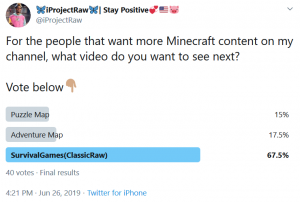
Every day, Google gets a little bit better at determining a website’s value in response to a user’s query. As a result, rankings fluctuate, and search engine optimizers like us spend a lot of time speculating on what SEO will look like next week, next month, and next year.
2015 is quickly coming to a close, and we’ve begun making plans for SEO in 2016. We’re reading between the lines, looking at what Google changed this year, and taking in the bits of information Google has given us in order to make predictions that will guide our work in January and beyond.
Here’s what we think so far:
#1: The more things change, the more they stay the same.
When I was first learning SEO in 2006, I read the words “content is king” more times than I can count. Ten years later, content is still the single most important element of search engine optimization, and publishing unique, relevant, useful content that real people value (and share) is the best way to succeed at SEO. This was as true in 2006 as it will be in 2016. Content marketing strategies change over time, but creating quality articles, guides, videos, infographics, and blog posts is the first step toward the top of Google’s search results.
#2: Mobile is going to matter more.
In April, Google rolled out a mobile-friendly update to its algorithm. This change was highly anticipated by SEO professionals, and so many sites had time to prepare (and avoid the consequences). The sites that didn’t bother to update to a responsive design or design for mobile stopped appearing at the top of Google’s search results on smartphones. SEOs speculate that we haven’t seen the last mobile-friendliness update from Google. In fact, we expect that responsive design will become even more important in 2016 as more and more users research, shop, plan, and interact on their smartphones.
#3: Google is going to tell us less.
We’ve already seen huge cut-backs in terms of how much information Google is willing to give us about our visitors. Google Analytics reports most keywords as “not provided” these days, making it extremely difficult to see whether or not our SEO efforts are paying off. Now Google is adding “Dark Traffic” to its “Direct Traffic” numbers. This means that any time Google can’t readily identify a traffic source, it shows up as Direct Traffic. As more and more people interact with various apps, messaging programs, and other tools, we can expect these numbers to grow – and we can expect to be in the dark when it comes to knowing which efforts are really driving traffic. 2016 may be the time to invest in a paid analytics service like Moz.
#4: We’re going to be competing with Google itself for placement on the SERPs.
If you haven’t already noticed, Google has spent this past year making their search results (and likely, their pockets) much richer. Today’s searchers often don’t need to leave Google to find the answers they’re seeking. Things like game scores, factual information like definitions or math equations, and other tidbits pop up at the top of the SERPs, keeping users right where Google wants them. Maps listings, carousels with local business information and images, and other rich snippets are taking up more of Google’s real estate, making it even harder for site to get found organically. As Google continues to give itself a bigger share of its own results pages, SEOs will have to seek out clever ways to achieve the ranks they need.
#5: Factors that previously haven’t mattered are going to make a big difference.
For a long time, Google’s official policy stated that click-through-rate (how many people visit your site after seeing it in their search results), social signals, and engagement metrics didn’t play a role in a site’s rankings. As 2016 approaches, Google has given us reason to believe that things may be about to change. Social signals like “likes,” “shares” and Tweets are a good indication of how much users value your content, and so they’re an obvious choice for Google to factor into its algorithm. Similarly, CTR and engagement (how long a user visited and how many pages they looked at on your site) offer a potential indication of how well your site answers a particular query. Google is all about developing an algorithm that mimics natural search behavior, and all these metrics will only further that goal. Once again, SEOs who want to succeed need more than just technical know-how. They need to be experts at digital marketing and content.
Digital & Social Articles on Business 2 Community(41)
Report Post



